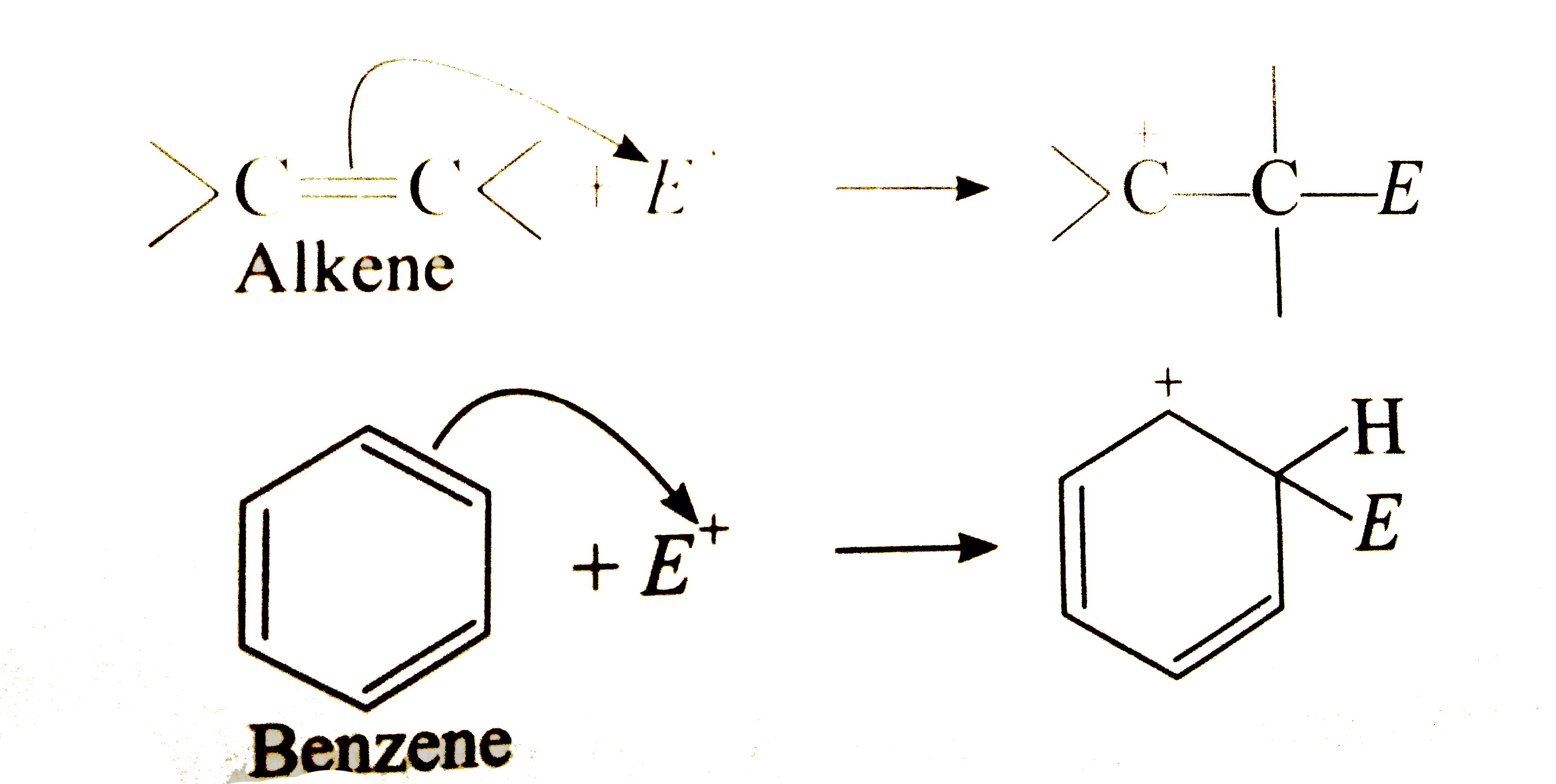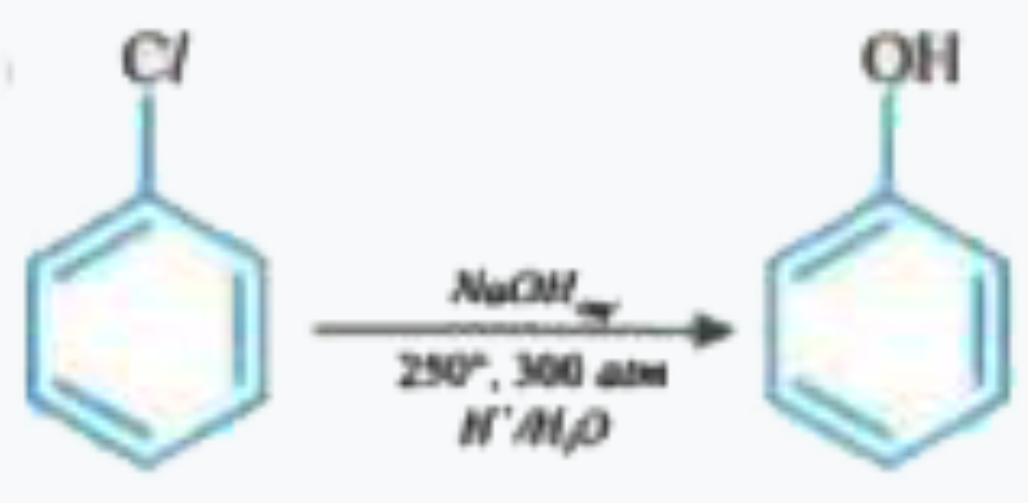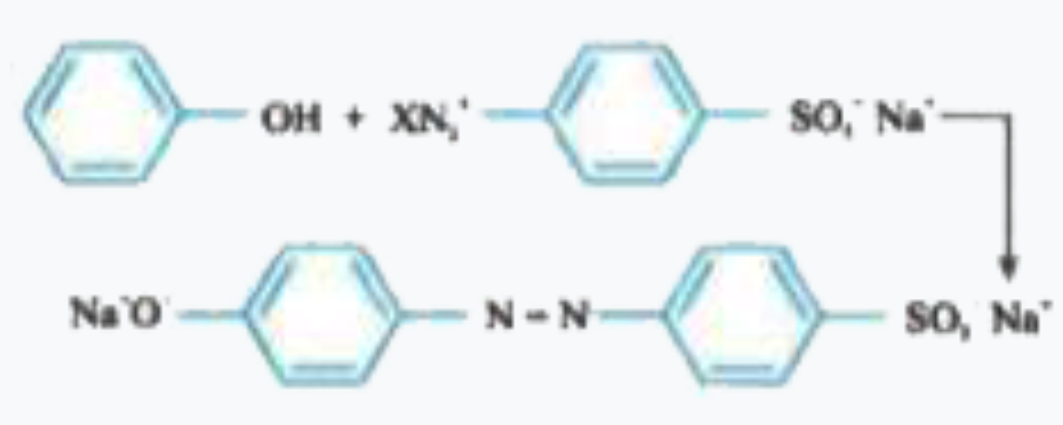Why do alkenes prefer to undergo electrophilec addition reaction while arenes prefer electrophilic substitution reactions ? Explain.
Video Solution
Text Solution
Both benzene and alkenes react with eletrophiles because of their exposed π−electrons and form carbocations.

The carbocation formed by alkene combines with the muclephile to form the addition product.

If this happend to benzene, the nuclephile removes a proton form benzene carbocation to form substitution product as to maintain the aromatic character.

|
Topper's Solved these Questions
Similar Questions
Knowledge Check
The example of an electrophilic substitution reaction is
A B
B CH2C=CH−CH3HBr−−−−→peroxide
CH2C=CH−CH3HBr−−−−→peroxide
Br2−CH2−CH2−CH3DH2CH2−CH2−O∣∣C−CH3For an electrophilic aromatic substitution reaction
AChlorine is o-p directing group and also electron releasing groupBChlorine is o-p directing group and also electron withdrawing groupCChlorine is meta directing group and also electron releasing groupDChlorine is meta directing group and also electron withdrawing groupThe ether the undergoes electrophilic substitution reaction is
ACH3OC2H5BC6H5OCH3CCH3OCH3DC2H5OC2H5
Why do alkenes undergo electrophilic addition reactions ?
View SolutionWhy do alkenes undergo electrophilic addition reactions ?
View SolutionElectrophilic substitution reaction in Haloarenes
View SolutionHaloalkanes undergo nucleophilic substitution reactions while haloarenes undergo electrophilic substitution reactions. Explain.
View SolutionThe ether that undergoes electrophilic substitution reactions is
View Solution
